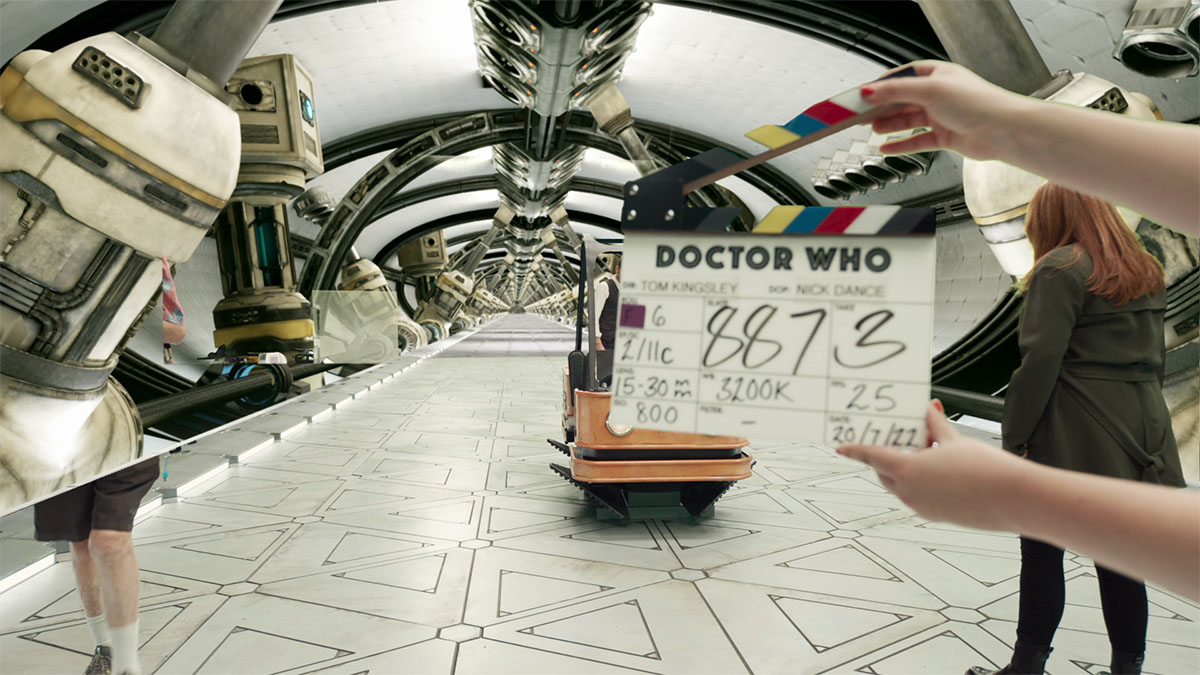
LONDON—Boutique studio Painting Practice and CGI, animation and VFX specialists RealTime relied upon Mo-Sys Engineering’s NearTime automated re-rendering service on-set virtual production to deliver VFX-heavy scenes for the recently aired “Dr Who” 60th anniversary specials.
“This ambitious diamond anniversary ‘Dr Who’ special was set to have more than 250 VFX shots, meaning traditional VFX approaches would be cost-prohibitive. So, we had to think differently,” said Mo-Sys technical director James Uren.
“Painting Practice use[s] Unreal Engine to create animated pre-visualizations of complex VFX sequences," he added. "Could this be extended to whole scenes or a whole episode? Could we take those pre-visualizations and bring them onto set with the real camera? Could we use Unreal Engine right up to the Final Pixel, automatically re-rendering what had been filmed on set?”
Prior to the anniversary specials, RealTime and Mo-Sys collaborated on Netflix production “Dance Monsters,” in which six cameras and eight monster characters were combined in real-time to capture the production as a live, light-entertainment show. The production relied upon the Unreal Engine and Mo-Sys VP Pro, Mo-Sys Engineering said.
The approach required the pair to develop a pipeline for transferring the precision camera and lens tracking data from Mo-Sys StarTracker through to post-production, helping to automate and speed up the VFX workload, it said.
Working with Amazon Web Services (AWS), Mo-Sys built and patented the NearTime solution. NearTime offers a dual workflow that enables automated Unreal re-rendering in the cloud. Tracking data is re-rendered with background plates and delivered back with increased quality and resolution in the same VFX delivery window, while making on-set renders available for real-time feedback, it said.
Putting pre-visualization, on-set camera tracking, real-time pre-viz, NearTime rendering and automated VFX pipelines together meant the VFX-heavy special could be completed with stunning visuals at a fraction of the cost of traditional VFX, it said.
More information is available on the company’s website.
The professional video industry's #1 source for news, trends and product and tech information. Sign up below.
Phil Kurz is a contributing editor to TV Tech. He has written about TV and video technology for more than 30 years and served as editor of three leading industry magazines. He earned a Bachelor of Journalism and a Master’s Degree in Journalism from the University of Missouri-Columbia School of Journalism.

